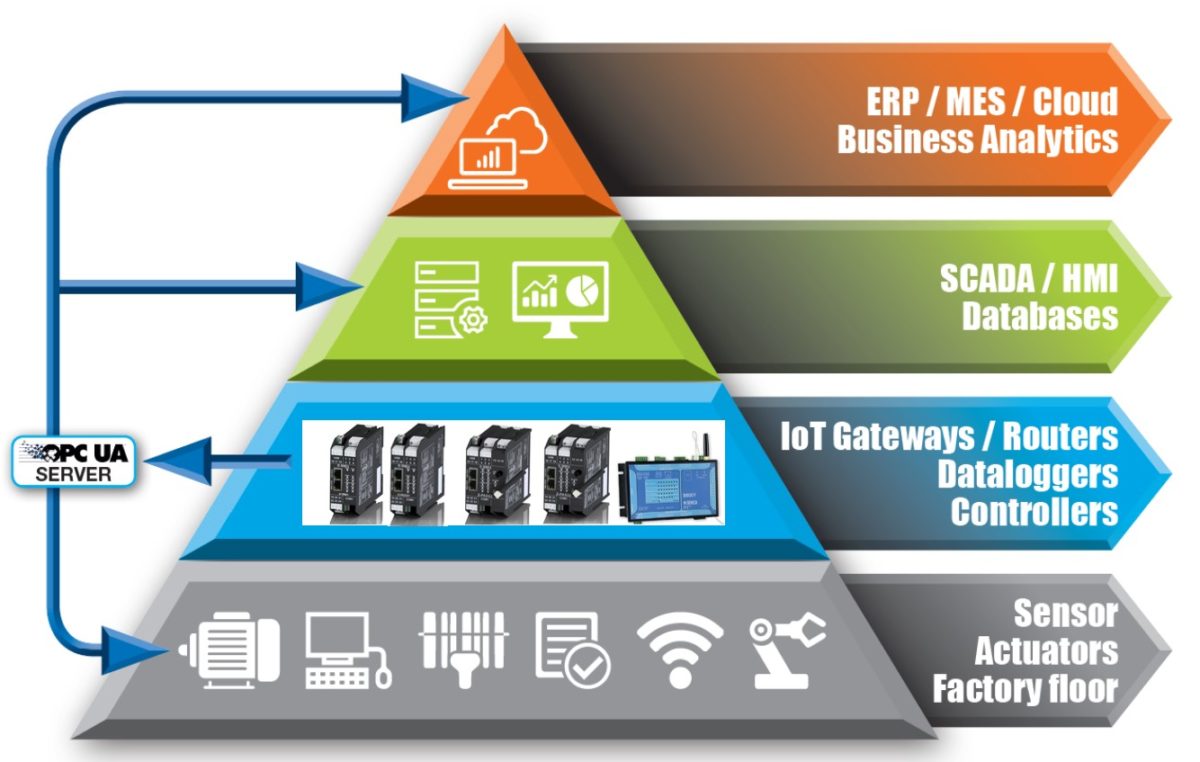 https://blog.seneca.it/wp-content/uploads/2020/04/opc_wp.jpeg
https://blog.seneca.it/wp-content/uploads/2020/04/opc_wp.jpeg
OPC UA (Open Platform Communications Unified Architecture) is an open communication protocol for industrial automation, which allows a smooth exchange between machines, plants and factory systems. In other words, it is a standard for cross-client communications based on the client-server principle via an independent platform that supports multiple safety mechanisms.
With the implementation of OPC UA Client / Server in Z-TWS4-S, Z-PASS2-S, S6001-RTU controllers and OPC UA Server in gateways/routers (Z-PASS1, Z-PASS2), SENECA devices can be used in automation applications with OPC UA client / server from other manufacturers and software houses. The OPC UA data model allows users access to all parameterization functions, diagnostic and operational information and open communication support designed by IoT / Industry 4.0 standards.

Specification and protocols
Historically, the OPC Classic standard consisted of three distinct main protocols, namely OPC Historical Data Access (OPC HDA), OPC Data Access (OPC DA), OPC Alarms and Events (OPC A & E), and other protocols, widely adopted in the manufacturing sector for interconnectivity needs. However, the OPC Classic standard depends on the platform and relies on Windows-based technologies.
OPC UA is the main heir to the OPC Classic standard and one of its main advantages is platform independence, which allows easy integration into Windows, Linux, Mac, Android and other platforms, which is very important for the manufacturing industry where machines and systems often run on different platforms.
Note that the objective of the OPC Foundation for the OPC UA project was to provide a step forward from the original OPC communication model (i.e. COM / DCOM) for a cross-platform service-oriented architecture (SOA) for process control, security improvement and information model. OPC UA supports two protocols: the binary protocol opc.tcp://server and the web services protocol http://server.
The binary protocol offers the best performance, takes minimal resources (without XML Parser, SOAP and HTTP requests, which is important for embedded devices), offers the best interoperability and uses a single TCP port for communication.
Web Service Protocol (SOAP) is best supported by programming tools such as Java or .Net environments, and is firewall-friendly, using standard HTTP/HTTPS ports.

Security
OPC UA standard protocols help to minimize system integration and configuration efforts for IoT and Industry 4.0 industrial solutions with maximum safety. Devices that support OPC UA ensure maximum security in data exchange with physically divided interfaces and separate configuration rights for OT and IT networks and supporting leading security protocols such as SSL/TLS and X.509 for data authentication and encryption.
SENECA affiliation to the OPC Foundation